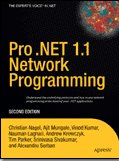When you use the Func<T, TResult> delegate, you do not have to explicitly define a delegate that encapsulates a method with a single parameter.
// The framework defines a number of parameterized delegate types: public delegate TReturn Func<TReturn>(); public delegate TReturn Func<T0, TReturn>(T0 a0); public delegate TReturn Func<T0, T1, TReturn>(T0 a0, T1 a1); public delegate TReturn Func<T0, T1, T2, TReturn>(T0 a0, T1 a1, T2 a2); public delegate TReturn Func<T0, T1, T2, T3, TReturn>(T0 a0, T1 a1, T2 a2, T3 a3);
Let see some examples -
Func which takes no input argument & returns string.
public delegate TReturn Func<TReturn>();
class FuncTest { static void Main(string[] args) { Func<string> PrintResultMethod = PrintResult; Console.WriteLine(PrintResultMethod()); } private static string PrintResult() { return "Hello World"; } }
Func which takes one input param & returns string
public delegate TReturn Func<T0, TReturn>(T0 a0);
class FuncTest { static void Main(string[] args) { Func<string,string> PrintResultMethod = PrintResult; Console.WriteLine(PrintResultMethod("Hello ")); } private static string PrintResult(string inStr) { return inStr + " World"; } }
Func which takes two input params & returns string
public delegate TReturn Func<T0, T1, TReturn>(T0 a0, T1 a1);
class FuncTest { static void Main(string[] args) { Func<string,string, string> PrintResultMethod = PrintResult; Console.WriteLine(PrintResultMethod("Hello ", "World")); } private static string PrintResult(string inStr1, string inStr2) { return inStr1 + inStr2; } }
Delegate instead of Func
In pervious examples we have seen the Func which takes one input param & returns stringpublic delegate TReturn Func<T0, TReturn>(T0 a0);
The above example can be written using delegate as:
delegate string PrintResultMethod(string inStr); public class DelegateTest { public static void Main() { // Instantiate delegate PrintResultMethod printResultMethod = PrintResult; // Use delegate instance to call PrintResult method Console.WriteLine(printResultMethod("Hello")); } private static string PrintResult(string inStr) { return inStr + " World"; } }
Func with Anonymous Method
The above example can be written using anonymous method as below:
public class FuncWithAnonymousTest { public static void Main() { Func<string, string> PrintResultMethod = delegate(string inStr) { return inStr + " World"; }; Console.WriteLine(PrintResultMethod("Hello")); } }
Func with Lambda Expressions
Following example shows same can be written using Lambda expressions in just two lines:public class FuncWithLambdaExpressionTest { public static void Main() { Func<string, string> PrintResultMethod = inStr => inStr + " World"; Console.WriteLine(PrintResultMethod("Hello")); } }





